plac-, placi-, -plais
(Latin: to please, to satisfy; peace, peacefulness; calm, calmness)
You can not please the entire world.
Usually people who are implacable can't be soothed or satisfied and they refuse to change their behaviors or opinions.
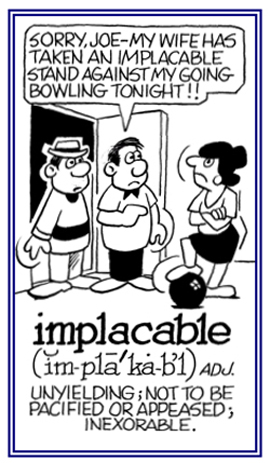
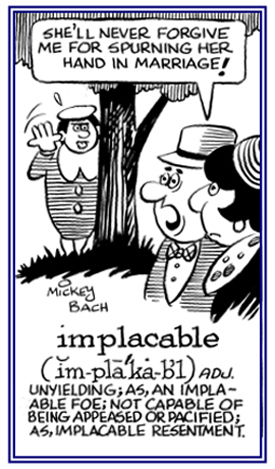
Go to this Word A Day Revisited Index
so you can see more of Mickey Bach's cartoons.
1. A formal way of indicating dissent or another way of saying, "Nay."
2. The term used for expressing a negative vote, especially by the governing body of a university.
2. To calm down and to make less angry; especially, by appeasement; to conciliate; to pacify: The administrators placated the customers by agreeing to consider a reduction in prices for the items when they became available again.
The clerk was placating the angry customer with an apology and a new replacement for the damaged item that was returned.
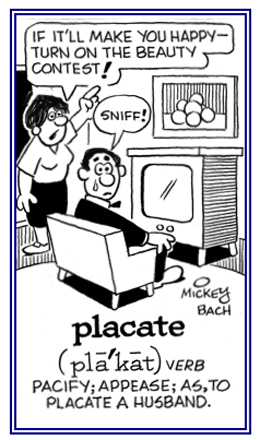
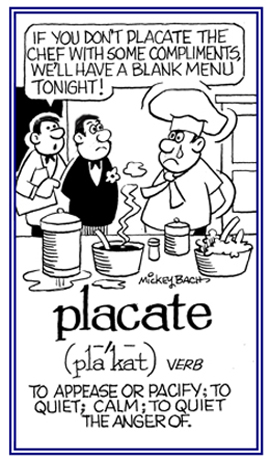
Go to this Word A Day Revisited Index
so you can see more of Mickey Bach's cartoons.
2. Something of no inherent benefit that is done, or said, simply to placate or to reassure someone that he or she is getting proper treatment: A placebo is given for the positive psychological effect it may have because the patient believes that he or she is receiving real medical attention.
3. Etymology: from Latin placebo, "I shall please"; future indicative of placere, "to please".
The medical sense is first recorded in about 1785, "a medicine given more to please than to benefit the patient".
Editorial: "Patient, heal thyself"
The effect of a placebo has been known since the beginnings of medicine.
- About the only medicine doctors from long ago could offer their patients was the reassurance that a medical treatment would work and it often was successful.
- It has become apparent that a patient's state of mind, awareness of his or her condition and expectations of the care she or he is about to receive can influence many outcomes of medicine from consultations with a doctor to clinical trials of a new drug.
- Apparently the usefulness of a drug, for example, depends on much more than the chemicals in a pill, and a deeper understanding of the result of a placebo can turn it into a valuable tool for reducing suffering.
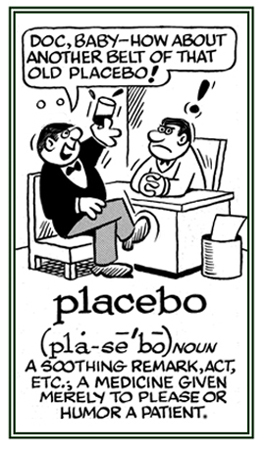
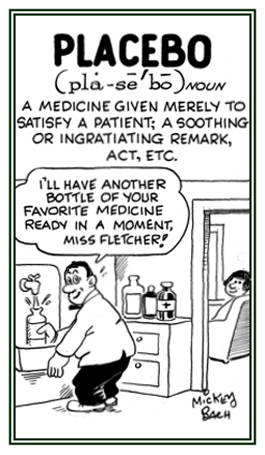
Go to this Word A Day Revisited Index
so you can see more of Mickey Bach's cartoons.
2. Etymology: from Latin placidus, "pleasing, gentle, calm" from placere, "to please".
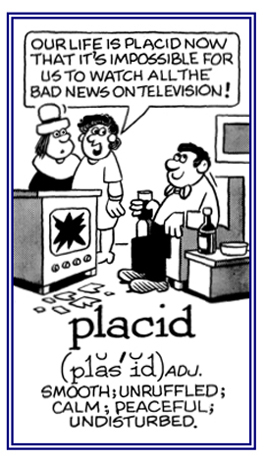
Go to this Word A Day Revisited Index
so you can see more of Mickey Bach's cartoons.
Cross references directly, or indirectly, involving "calm, calmness, peace, quiet": pac-, peac-; quies-, quiet-; seren-.


